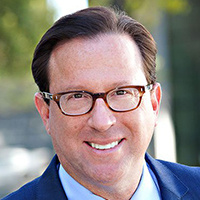 Hutchins Felony Lawyers, Texas
Hutchins Felony Lawyers, Texas
Sponsored Law Firm
-
 x
x

Click For More Info:
-
Law Offices Of Bruce C. Kaye
400 N. St. Paul St.1110 Dallas, TX 75201» view mapCriminal Defense Law Changing Lives, One Case At A Time
The best thing about running my own practice is the opportunity to give my clients the individual attention they deserve.
800-920-9461
Sponsored Lawyers
1-7 of 7 matches
Criminal, Misdemeanor, Felony, DUI-DWI
James Guinan began practice in November 1989 and practices as a Criminal Defense and Family lawyer in Dallas, Collin, Denton and Tarrant Counties.
(more)Criminal, DUI-DWI, Misdemeanor, Felony
The fact that one mistake, one bad day, or even a police officer’s mistake could completely ruin or change the trajectory of your entire life made me want to get into criminal law. I grew up in Dallas and attended SMU Dedman School of Law. I began my career fighting for people as a Public Defender in Dallas. I saw how unfairly the criminal justice system treats people, especially if they don’t have a good lawyer. I wanted to treat my clients how they deserved to be treated – by taking the time necessary to get to know who they are and what they need. I created my law firm to do just that. Understanding that people shouldn’t be judged on their worst day, I strive to help people through difficult times with compassion and integrity. Facing criminal charges is intimidating. Knowing this, I ensure my clients understand the process, their rights, and the possible outcomes for their case. I pride myself on getting to know my clients outside of their case files. When I represent you, you’ll have an ally to explain the process, your rights, your options, and how to best resolve the matter. We understand where you’re coming from, carefully walk you through each step of the criminal process, and directly answer your questions. We start every case with an initial one-hour consultation. Most lawyers only give a quick sales pitch in a 15-minute call. We don’t do that — we’ll discuss what happened and give you an idea of what to expect, including possible outcomes and strategies. We’ll also talk about pricing. Once we’re engaged, our team will get to work right away, giving you feedback along the way so you know that we’re on it. We’ll also familiarize you with our convenient online portal for existing clients and provide regular updates and clear lines of communication until we reach a satisfactory resolution.
(more)



 Bruce Kaye Dallas, TX
Bruce Kaye Dallas, TX


